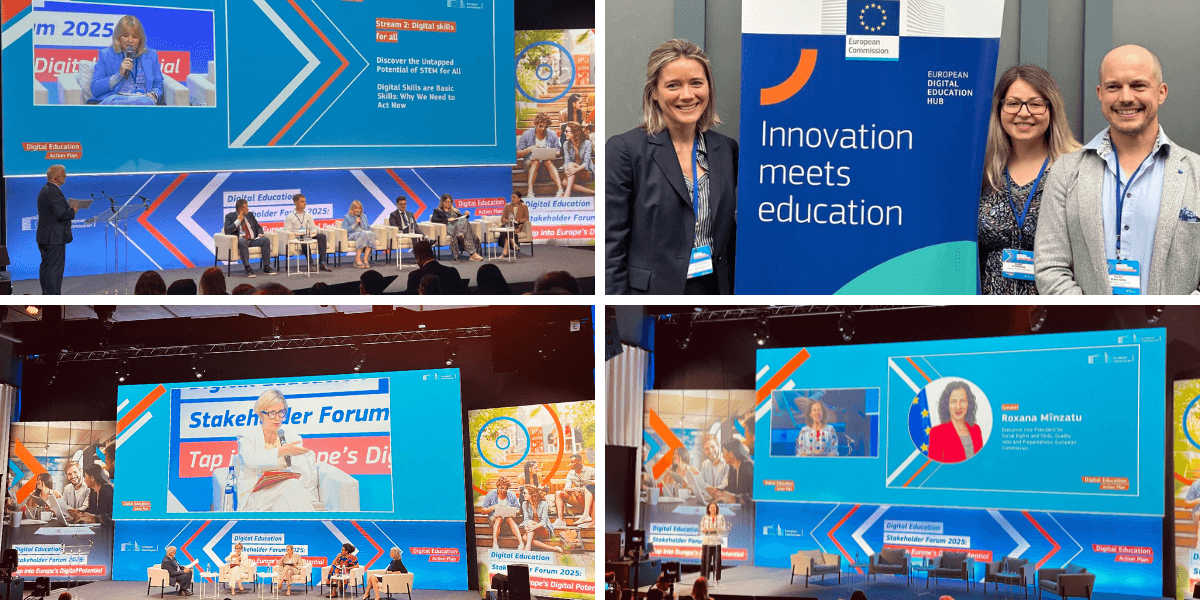Stay in the loop! Subscribe to our mailing list
On 24 June 2025, the European Commission hosted the Digital Education Stakeholder Forum 2025 in Brussels, marking four years of the Digital Education Action Plan (2021–2027) (for more, see ACA Newsletter – Education Europe, September 2020). The Forum brought together policymakers, educators, EdTech innovators, and civil society to reflect on lessons learned and shape the path to the 2030 Roadmap for digital education and skills, set to be published later this year. Representing ACA, Angeliki Psychogyiou, Policy and Project Coordinator, contributed as rapporteur for the session “Discover the Untapped Potential of STEM for All”, which underscored the importance of inclusive, ecosystem-based approaches to STEM education. Among the Forum’s key messages was a strong call to place people at the heart of the digital transition: to support educators with clear guidance on the use of AI, to treat digital literacy as a social right, and to integrate well-being into all aspects of digital learning. These priorities reflect a broader understanding of education’s societal role — a point also emphasised by Roxana Minzatu, Executive Vice-President for Social Rights and Skills, Quality Jobs and Preparedness, who noted that education and skills is not just about preparing the workforce; it is also about preparing the citizens.

Another milestone in the EU’s digital education agenda came with the long awaited official publication of the European Higher Education Interoperability Framework. Developed within the European Digital Education Hub, the framework aims to support cross-border learning and collaboration by improving the compatibility of systems across institutions (for further details on the background and development of the framework, see ACA Newsletter – Education Europe, January 2025). Built on eight core use cases, the Framework promotes seamless learning pathways, more effective institutional collaboration, and reduced administrative burdens. It offers a reference architecture, governance proposal, and implementation resources to guide institutions through policy, organisational, and technical interoperability. You can access the full set of materials, including the mapping report, synthesis analysis, and reference models here.
With its formal launch, higher education institutions and European Universities alliances are also invited to lead the testing and scaling of the Interoperability Framework in its initial implementation phase. Interested insitutions can apply by 15 july 2025 here.